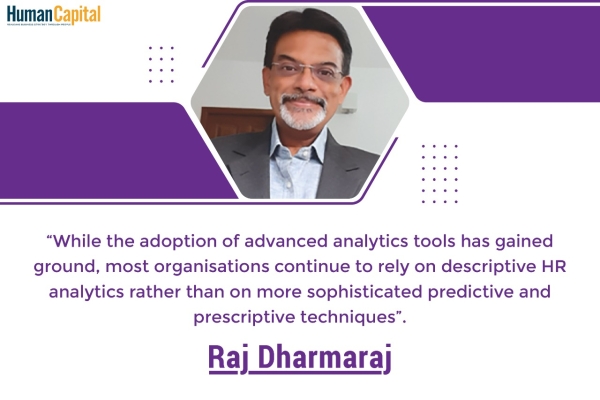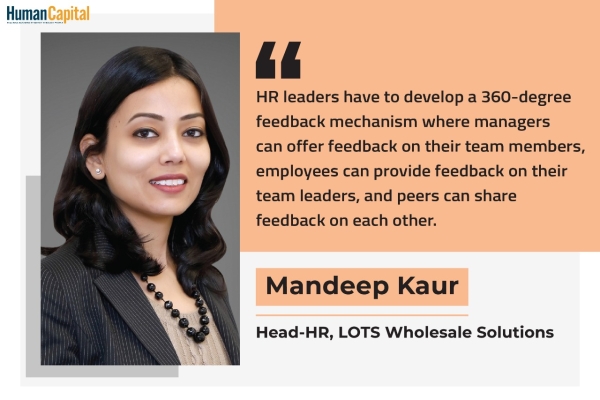The advent of technology in the 21st century has brought about significant changes in the way businesses are conducted. This change has impacted all industries - all though in certain industries the change is more visible and rapid. Technologies such as Automation and Artificial Intelligence are bringing about unforeseen changes in the world of business. This is also leading to rapid disruptions in the way businesses are conducted and the value they have to offer. In this rapidly changing business universe, the talent within the organisation becomes a crucial source for the next phase of growth. Today, businesses are less about physical resources and more about the next great idea that helps in solving a real business / human problem - and, that next solution is a product of thoughts / designs devised by people.
Discretionary Effort + Belief in purpose = Engagement
A newer course differentiator
In the human resources parlance, "engagement" is defined as the discretionary effort made by people beyond their call of duty. It is this "discretionary effort" that works as the differentiator between charting a new course as against business as usual. And, in times of change, the ability to frequently chart a new course is what keeps organisations strong. Research suggests that organisations that have strong talent management practices in place tend to have greater discretionary efforts. This is because people feel connected to the cause and do not assume that their roles to be just another job that needs to be done. An interesting paradigm in this digital business age is the fact that while people engagement is a differentiator of business success, it is also true that the millennial generation is warming up to the concept of gig economy which is working a model where there are no permanent jobs, but a combination of multiple assignments or projects with multiple organisations.
In the more traditional context, talent management was an overarching philosophy that covered the entire life cycle of an employee starting from the talent attraction strategy to careers within the organisation and to the separation experience. With a specific reference to talent development, the most commonly used tool has been the 9-box grid which plots employees basis their performance and potential. In an economy where individuals prefer short assignments to life-long employment with the same employer, development would be driven by the individuals more than being organisation driven. And, this is where organisations will need to be flexible enough to realise their role as enablers of development rather than having a push philosophy.
Talent management is not just about offering career development opportunities for the top talent, but rather, the complete life cycle of how a potential employee perceives an organisation, and therefore, the big question is how would talent management look like a gig economy? Below are possible pointers:
Employer branding through quality of work: In an economy that is increasingly becoming gig (according to an estimate, 30% of the working age population are currently in this category in the US), the challenge of a real business problem would be a great tool to attract top talent for fixed, short-term assignments. However, the quality of assignments would ensure whether the talent would return to the organisation for any future assignment. This is where the best of talent management practices are required to be put in place - right from the time the first interaction with the potential candidate is initiated, till the time the contract is signed. Once the individual has onboarded the organisation, then the quality of interaction and the experience offered while working would be key to a great talent management model.
Low-risk aversion: Organisations that are more open to taking risks, willing to try out innovative ideas coming from young talent would be able to attract, and therefore, manage better talent. This is because top talent would find greater acceptance in the business world, irrespective of their vintage and domain of work - the sheer opportunity to test new solutions would be the driver of engagement with the organisation.
360 degree feedback: Employees in general and millennials in particular love feedback that is closer to the event and have opportunities at actual development that in fact contribute to an enriching work experience. Organisations that can offer an experience of such a kind would always have easier access to top talent for short term assignments than others. Gig workers in most cases look at work not as mere assignment, but, as a means to expressing themselves. This is where quality feedback which provides opportunity to develop one's capabilities become a differentiator in attracting top talent to organisations even in this environment.
Offering ongoing interaction: The biggest difference between lifetime employment with a single employer versus gig assignments is the quality of interaction - the better the quality of interaction, the higher the engagement and that would mean higher probabil-ity of the talent returning to the organisation for another assignment. In this scenario, the ability to keep the talent curious and inquisitive about developments within the organisation is key to a great talent management experience.
Inter organisation collaboration: In order to leverage the talent capability, organisations that shall be more forthcoming to collaborate and share capabilities would in turn be able to attract better talent as well. In the near future, people working on projects across the organisation collaborating on a common human problem would become the norm than an exception. From an organisational standpoint, this would mean talent sharing across teams to deliver on common goals, while for the individual, it would be the experience of working with multiple cultures and challenges simultaneously.
The big difference in the talent management principles of the past and those of the future is the very prism through which talent is viewed. In a futuristic world, talent would not be confined to one organisation courtesy multiple assignments with different organisations where the individual would look to build skills and also make meaningful contributions. This also implies that there will be more opportunities for organisations to collaborate together and harness the potential of talent, while solving real human challenges.
Does your organisation support you in maintaining work-life boundaries?
Trending
-
SBI General Insurance Launches Digital Health Campaign
-
CredR Rolls Out 'Life Happens' Leave For Its Employees
-
Meesho Announces 30-Week Gender-Neutral Parental Leave Policy
-
Microsoft Unveils Tech Resilience Curriculum To Foster An Inclusive Future
-
60% Indian Professionals Looking For Job Change Due To COVID: Survey
-
SpringPeople And Siemens Collaborate For Digital Transformation Push
-
86% Professionals Believe Hybrid Work Is Essential For Work Life Balance: Report
-
Almost 1 In Every 3 People's Personal Life Affected Due To Work Stress
-
Meesho Rolls Out Reset And Recharge Policy For Employees
-
80% Of Talent Leaders & Academics Say Pandemic Changed Skill Needs For Youth: Report
-
Hero Electric Rolls Out 'Hero Care' Program For Employees
-
Human Capital In Collaboration With ASSOCHAM Hosts Virtual Conference
-
IKEA India, Tata STRIVE Collaborate To Create Employability And Entrepreneurship Opportunities
-
SAP India, Microsoft Launch Tech Skilling Program for Young Women
-
DXC Technology, NASSCOM Collaborate For Employability Skills Program
-
Lenskart To Hire Over 2000 Employees Across India By 2022
-
Mindtree Launches Learn-and-Earn Program
-
Tata AIA Extends 'Raksha Ka Teeka' To Its Employees
-
Swadesh Behera Is The New CPO Of Titan
-
NetConnect Global Plans To Recruit 5000 Tech Professionals In India
-
Hubhopper Plans To Hire 60% Of Indian Podcasters By 2022
-
Corporate India Needs More Women In Leadership Roles: Report
-
Aon to Invest $30 Million and Create 10,000 Apprenticeships by 2030
-
Tech Mahindra Launches ‘Gift a Career’ Initiative for Upskilling of Youth
-
40% Women Prefer Flexible Working Options in Post-COVID World: Survey
-
3 out of 4 companies believe they can effectively hire employees virtually: Report
-
Vodafone , CGI and NASSCOM Foundation launch digital skills platform
-
Odisha: Bank, postal employees to deliver cash for elderly, differently-abled persons
-
Skill India launches AI-based digital platform for "Skilled Workforce"
-
Hiring activity declines 6.73% in first quarter: Survey
-
70% startups impacted by COVID-19 pandemic
-
Bajaj Allianz Life ropes in Santanu Banerjee as CHRO
-
Over 70 Percent MSMEs look at cutting jobs to sustain businesses
-
93 Per Cent employees stressed about returning to office post-lockdown
-
Johnson & Johnson India announces family benefits for same gender partners
-
Indian firms turning friendly towards working mothers
-
Welspun India names Rajendra Mehta as new CHRO
-
Wipro partners with NASSCOM to launch Future Skills platform



Human Capital is niche media organisation for HR and Corporate. Our aim is to create an outstanding user experience for all our clients, readers, employers and employees through inspiring, industry-leading content pieces in the form of case studies, analysis, expert reports, authored articles and blogs. We cover topics such as talent acquisition, learning and development, diversity and inclusion, leadership, compensation, recruitment and many more.
Subscribe Now












































Comment